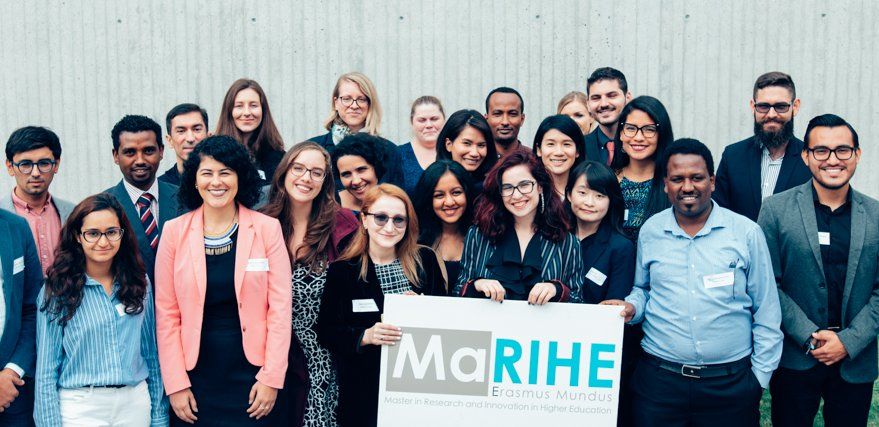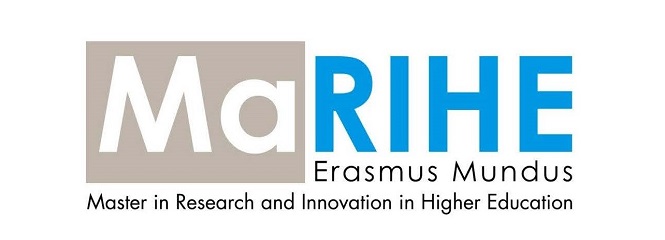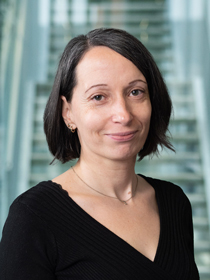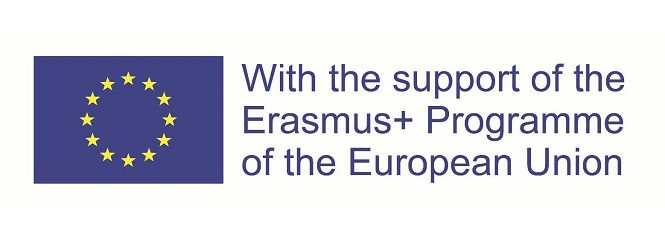-
Graduation
Erasmus Mundus Joint Master - EMJM
-
ECTS-Points
120
-
Learning format
-
Duration
4 semesters
-
Costs
EUR 18.000,--
-
Admission requirements
According to curriculum
-
Language
English
-
Curriculum

The "Research and Innovation in Higher Education" (MARIHE) Erasmus Mundus Joint Master’s program addresses this need by offering a curriculum that provides a deep understanding of these change processes and their impact on education systems, and labor markets. It covers three main areas: "systems in transition," focusing on global and regional developments; “interactions between systems and institutions”, particularly in research and innovation funding; and the “institutional perspective”, emphasizing change management. The program also emphasizes transferable skills such as critical thinking, entrepreneurship, and leadership.
Students in the MARIHE program benefit from significant mobility and intercultural experiences, studying in at least two European countries and one Asian country over four semesters. An internship during the third semester offers practical insights into the field, facilitated by enterprises and organizations related to the course's focus. Graduates receive a joint or double degree, preparing them for the evolving demands in research, innovation, and higher education management.

Preparing higher education, research and innovation for the future calls for ambitious and skilled managers, analysts, researchers and policy makers.
Prof. Dr.
Attila Pausits
Study Program Director - Department for Higher Education Research

Benefit from our study program
-
MARIHE is a unique global Master program on higher education, research and innovation. It is a 2-year full time study journey in Europe and Asia - a truly international experience. It offers full Erasmus Mundus scholarships for applicants with a first university degree from all around the world.
-
MARIHE is jointly conducted by an international consortium with partners from Austria (University for Continuing Education Krems as coordinating institution), China, Finland, Germany, Hungary, India, and Portugal, thus providing a global perspective on higher education, research and innovation.
-
In this Master program, students can choose between several specialisations: one out of two specialisations in Asia and one out of five specialisations in Europe.
-
unique
-
a variety of options
-
global/international perspective
Next student intake
The next student intake with available Erasmus+/Erasmus Mundus scholarships is in October 2025, with the application period opening in autumn 2024. For more information, please refer to MARIHE website.

Curriculum
The full-time study program with 120 ECTS can be completed within 4 semesters (2 years). Students have the same mobility track in the first two semesters (Krems/Austria and Tampere/Finland). In the third and fourth semester, students chose their specialization in Asia (Beijing/China or Patiala/India) and in Europe (Krems/Austria, Tampere/Finland, Osnabrück/Germany, Budapest/Hungary, or Aveiro/Portugal).
1st Semester, University for Continuing Education Krems/Austria
All students study together in the 1st and 2nd semester.
-
Contents
Education/innovation & research sector related EU policies and activities, their impact and actions on HE etc.
-
Contents
The rationales and objectives of the major changes in tertiary education and research system towards NPM, deregulation, autonomy and marketization.
-
Contents
The nature and thematic areas of HE research and innovation studies.
-
Contents
Key terms, concepts, theories, methods and challenges of teaching and learning.
-
Contents
HE institutions as a specific organisational type, role and functions of the different organisational units, basic processes, key challenges of management etc.
-
Contents
Philosophical bases of social science research methodology, basics in developing quantitative research design etc.
2nd Semester, Tampere University/Finland
All students study together in the 1st and 2nd semester.
-
Contents
Central features of the different HE, research and innovation systems; concepts of globalisation, internationalisation and regionalisation in HE etc.
-
Contents
The special nature of HEIs as organisations in terms of culture, structure and the process of organising the production of education, research and innovation.
-
Contents
The role and impact of higher education with regard to the present-day societal challenges.
-
Contents
Different financial and management environments and their linkages to financial management of HEIs; the rationales behind different approaches in funding; HE, research and innovation as economic goods.
-
Contents
The concepts and dynamics of entrepreneurship and innovation in HE and HEIs; the connection of entrepreneurial HEIs and entrepreneurial education.
-
Contents
Philosophical bases of social science research methodology, particularly qualitative research method; conceptual and analytical framework, data collection etc.
3rd Semester: Specialization Asia, Beijing Normal University/China - Educational Planning and Development
Students chose between the two specializations offered by the Asian partners.
-
Contents
Histories, reforms and challenges of HE system in seven Asian countries.
-
Contents
Review of the key concepts, cases, approaches and research in the field of educational planning.
-
Contents
Theories and approaches of comparative education as well as a global landscape of theories, policies, practices, cases, problems and debates in higher education reforms.
3rd Semester: Specialization Asia, Thapar Institute of Engineering and Technology/India - Sustainable Education and Social Entrepreneurship
Students chose between the two specializations offered by the Asian partners.
-
Contents
Histories, current processes and challenges of HE system in Asia, different types of systems, processes and issues.
-
Contents
Understanding of the fundamentals associated with the creation of social and commercial enterprises.
-
Contents
Preparing future educational leaders to drive sustainability initiatives within higher education institutions.
3rd Semester: Specialization Europe, University for Continuing Education Krems/Austria - Institutional Research
Students chose between the five specializations offered by the European partners.
-
Contents
The use of data in institutional decision making processes, the sequences and steps of the process of institutional research etc.
-
Contents
How to develop and design institutional research projects, to combine recent information and future scenarios towards planning etc.
3rd Semester: Specialization Europe, Tampere University/Finland - Research Management and Digital Transformation
Students chose between the five specializations offered by the European partners.
-
Contents
Fundamental knowledge and skills in research and transfer management in the field of higher education through the lens of problem-based learning.
-
Contents
Key developments and policies in Europe and OECD countries and key pillars of digital transformation in higher education and research settings.
3rd Semester: Specialization Europe, Osnabrück University of Applied Sciences/Germany - Leadership and Management
Students chose between the five specializations offered by the European partners.
-
Contents
Theory and practice of organizational development and change management; the context of competitive, market-oriented research and tertiary education systems; self-leadership etc.
-
Contents
The concepts and processes of strategic management, leadership styles, change management, organisational culture and internal resource allocation mechanisms.
3rd Semester: Specialization Europe, Eötvös Loránd University/Hungary - Learning and Teaching
Students chose between the five specializations offered by the European partners.
-
Contents
Programme design and learning outcomes; the process of programme design, implementation and evaluation in higher education, etc.
-
Contents
Theory and practice of innovation in teaching and Learning in Higher Education, the role of researching teaching and learning for creating innovation.
3rd Semester: Specialization Europe, University of Aveiro/Portugal - Policy Analysis
Students chose between the five specializations offered by the European partners.
-
Contents
How public policies can contribute to increase the relationship between S&T and development and how S&T systems can be organized to optimize this relationship.
-
Contents
Study and analysis of the core aspects of higher education policies, organization and management.
3rd semester: Internship
-
Contents
The pertinent issues and the main challenges of HE research, innovation, management and leadership.
4th Semester: Master Thesis
Possible at all seven partners.
-
Contents
Apply the basic principles of research writing processes and techniques.
Follow our MARIHE Website for open application periods!
Application
Admission requirements
- First university degree quantified as three years of studies (full time) corresponding to 180 ECTS
- Sufficient knowledge of English for academic purposes
Application process
- Online application via the MARIHE Application Database as either Erasmus Mundus scholarship holder or self-funded student during the application periods (cf. information on MARIHE Website).
- Carrying out the selection procedure (review process within consortium).
- In case of selection: Starting the admission process at University for Continuing Education Krems as coordinating institution (via UWKonline platform - for selected participants only!).
- If applicable: Carrying out the legalization process of the first university degree certificate.
- Admission to the program.
Degrees
MARIHE awards either a Joint Degree or Double Degree:
- In the specialization Institutional Research: Master of Administrative Sciences
- In the specialization Research Management and Digital Transformation: Master of Administrative Sciences
- In the specialization Leadership and Management: Master of Science
- In the specialization Learning and Teaching: Master of Science
- In the specialization Sustainability Education and Social Entrepreneurship: Master of Arts in Sustainability Education and Master of Science (Continuing Education)
- In the specialization Educational Planning and Development: Master of Arts in Education and Master of Science (Continuing Education)
- In the specialization Policy Analysis: Master in Administration and Public Policies and Master of Science (Continuing Education)
Detailed information are available on MARIHE website.
Tags

